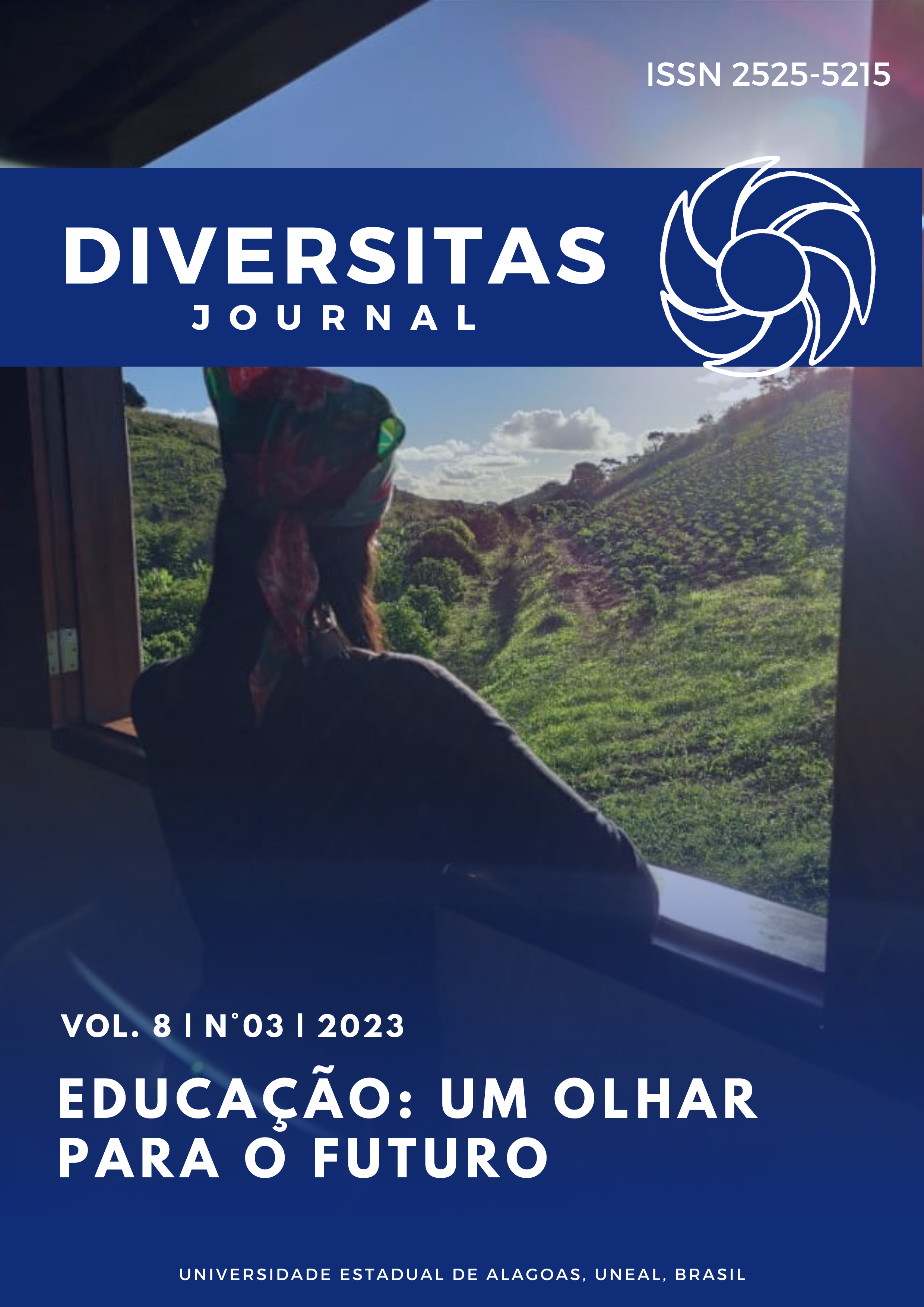Epistemologies of the Agreste
reflections and constructs of popular knowledge in Agreste
DOI:
https://doi.org/10.48017/dj.v8i3.2485Keywords:
Epistemologies of the Agreste of Pernambuco, Epistemologies of the South, Popular KnowledgeAbstract
This article is the result of a dissertation by Otávio A. Chaves R. dos Santos, under the supervision of Dr. Allene Carvalho Lage, as well as reflections of the Latin American Philosophy Study Group of the Federal University of Pernambuco - Agreste Campus (Grupo de Estudo Filosofia Latino-americana da Universidade Federal de Pernambuco - Campus Agreste). Based on the assumption that there is an epistemology of the populations of the Agreste of Pernambuco, the authors aim to understand the conditions of elaboration, organization, languages and production of popular knowledge constructed by men and women of the arts of letters, clay, therapeutic care (healers and raizeiros) and the cultivation of the land. The present study wants, specifically, to highlight the structuring, the dynamics and the specific processes of the Epistemologies of the Pernambuco Agreste. This study in question is based on the Epistemologies of the South, underlined by Santos (1983; 2010), Fals Borda (1995), Brandão (1994) and Arroyo (2012). The methodology adopted is of an exploratory nature, coined by the Extended Case (Caso Alargado) method (Lage, 2013) that provided both the election of the collection tools and the data analysis technique. The results obtained were: a) there is an intimate relationship between the conditions experienced and the elaboration of meanings and knowledge produced by the subjects; b) there is a structural and, at the same time, dynamic and proper framework to produce knowledge of the Agrestinas populations; c) Popular Education is invited to (re)visit itself from the Agrestinas epistemologies that raise other sources, instruments and organizational ways of the popular subjects to pronounce their cosmoperceptions and their contributions to a dialogical and critical-transformative education; d) these epistemologies emerge from the daily life lived and reflected from the cycles of nature, the exchange of knowledge and the (self)narratives of native and/or resident social subjects.
Metrics
References
ARROYO, M. G (2012). Outros Sujeitos, Outras Pedagogias. Petrópolis/RJ: Vozes, 2012.
BRANDÃO, C. R. (1994). Somos as águas puras. Campinas, SP: Papirus.
DA MATTA, R. (1978). Ofício do etnólogo ou como ter anthropological blues. In: Nunes, E. (org). A aventura sociológica. RJ: Zahar.
FALS BORDA, Orlando. Uma Sociologia sentipensante para América Latina. Bogotá, CLACSO/Siglo del Hombre Editores, 2009.
FELIX, J. (2019). Estudos Culturais e os Estudos de Gênero: diálogos, aproximações e distanciamentos. In: Gonçalves, C.; Andrade, F. Pelas Fretas: Pesquisas em Estudos Culturais da Educação. Editora CRV, Curitiba.
GRAMSCI, A. (2020). Odeio os indiferentes, escritos de 1917. Tradução Daniela Mussi, Alvaro Biachi. 1. ed. São Paulo, Boi tempo.
GANDHI, M. (1997). Minha Missão: Ética, Política e Espiritualidade. Rio de Janeiro: Multiletra.
LAGE, A. (2013). Educação e movimentos sociais: caminhos para uma pedagogia de luta. Recife: Ed Universitária da UFPE.
MARQUES, J.; Zenha, L.; Monta, P. (2021) Amputação das montanhas do sertão: ecocídio e mineração na Bahia, v. 2. Paulo Afonso, BA: SABEH, 2021.
SANTOS, B. S. (2010) Epistemologias do Sul. São Paulo: Cortez.
SANTOS, B. S. Os Conflitos Urbanos no Recife: O Caso do "Skylab". In: Revista Crítica, n. 11, maio, pp. 9-59. Coimbra: CES, 1983.
SANTOS, Otávio A. Chaves Rubino dos. Mestras e mestres da oralidade: ensinem-nos os saberes ancestrais da Mãe-Terra. Dissertação de mestrado; Universidade Federal de Pernambuco, Campus Agreste (UFPE - CAA); Programa de Pós-graduação em Educação Contemporânea. 2017.
SANTOS, Otávio A. Chaves Rubino dos; LAGE. Allene Carvalho. Educação e saberes populares: a ancestralidade de mestras e mestres da oralidade. REVISTA DE EDUCAÇÃO POPULAR, v. 18, p. 209, 2019.
SANTOS, Otávio A. Chaves Rubino dos; FERNANDES, Everaldo. NICOLAU, Ivan. Ecovilas e educação sentipensante: Saberes e educação popular na Ecovila Vraja Dhama domovimento Hare Krishna. EDUCAÇÃO (SANTA MARIA. ONLINE), v. 46, p. 1-27, 2021.
SILVA, E. (2017). Xukuru: memórias e história dos índios da Serra do Ororubá (Pesqueira/PE), 1959-1988 / Edson Silva. 2.ed. Recife: Editora UFPE. 2017.
Downloads
Published
How to Cite
Issue
Section
License
Copyright (c) 2023 Otávio Chaves dos Santos Prema, Everaldo Fernandes da Silva, Allene Carvalho Lage, Maria Aparecida Vieira de Melo

This work is licensed under a Creative Commons Attribution 4.0 International License.
The Diversitas Journal expresses that the articles are the sole responsibility of the Authors, who are familiar with Brazilian and international legislation.
Articles are peer-reviewed and care should be taken to warn of the possible incidence of plagiarism. However, plagiarism is an indisputable action by the authors.
The violation of copyright is a crime, provided for in article 184 of the Brazilian Penal Code: “Art. 184 Violating copyright and related rights: Penalty - detention, from 3 (three) months to 1 (one) year, or fine. § 1 If the violation consists of total or partial reproduction, for the purpose of direct or indirect profit, by any means or process, of intellectual work, interpretation, performance or phonogram, without the express authorization of the author, the performer, the producer , as the case may be, or whoever represents them: Penalty - imprisonment, from 2 (two) to 4 (four) years, and a fine. ”


















